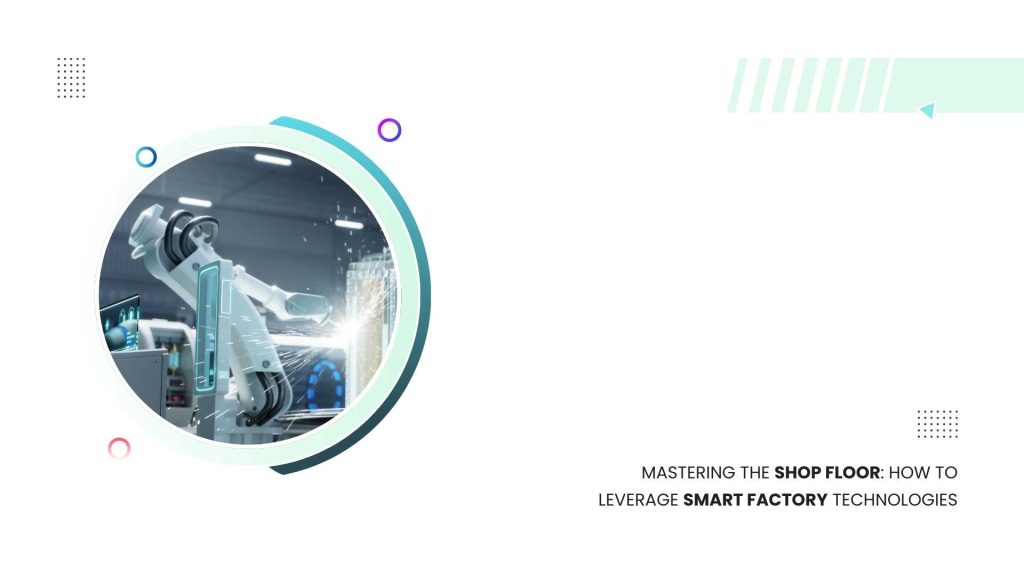In today’s fast-paced manufacturing environment, the integration of smart factory technologies is not just an option; it’s a necessity for staying competitive. Smart factory technologies encompass a suite of digital innovations designed to enhance manufacturing processes through automation, data analytics, and interconnected machinery. By leveraging these technologies, manufacturers can significantly boost effectiveness, reduce downtime, and improve overall production quality.
Key Features of an Effective Smart Factory Platform
Enhanced Decision-Making Through Data:
Smart factory technologies enable real-time data collection from various machines and processes, allowing managers to make informed decisions that improve efficiency, reduce costs, identify issues, predict maintenance needs, and optimize production schedules.
Advanced Analytics and Decision Support:
Advanced analytics tools process data to reveal production trends, machine performance, and bottlenecks. Decision support systems then use these insights to suggest improvements and guide managers in enhancing productivity and product quality.
Automated Monitoring and Visualization:
Automated monitoring systems continuously track the performance of machines and processes, alerting operators to any deviations from the norm. Visualization tools present this data in an easily understandable format, such as dashboards or graphical reports, allowing for quick assessment and response to any issues that arise.
Integrated Operations
Integration of various systems and processes within the factory is essential for smooth operation. Smart factory platforms ensure seamless communication between different machines and departments, enabling coordinated efforts that lead to streamlined workflows and reduced lead times.
Comprehensive Machine Connectivity
Machine connectivity is at the heart of a smart factory. By connecting machines and systems, data can be shared and analyzed across the entire production line. This connectivity not only improves monitoring and control but also allows for predictive maintenance and faster troubleshooting.
How Smart Factory Technologies Drive Results on the Shop Floor
Smart factory technologies, combined with lean manufacturing principles, work synergistically to optimize operations and achieve exceptional results on the plant floor. Here’s how these approaches can transform your plant operations:
Data Utilization
Using data from interconnected machines enables precise monitoring of production processes, identifying inefficiencies, predicting maintenance needs, and optimizing performance, resulting in reduced downtime and increased throughput.
Lean Manufacturing
By incorporating lean manufacturing principles, such as waste reduction and continuous improvement, smart factories technologies help in creating more efficient production systems. Automation and data analytics enable the identification and elimination of non-value-added activities, resulting in more streamlined and cost-effective operations.
Benchmarking
Smart factory technologies facilitate benchmarking by providing detailed performance metrics. Manufacturers can compare their performance against industry standards or internal targets, identify gaps, and implement strategies to bridge these gaps, driving continuous improvement.
How the Right Smart Factory Platform Can Support Your Business
A robust smart factory platform supports your business in several key areas:
Engagement
Engaging workforce at all levels is crucial for the successful implementation of smart factories technologies. A user-friendly platform encourages adoption and participation, fostering a culture of continuous improvement.
Improvement
Continuous improvement is a cornerstone of smart manufacturing. The right platform provides tools for tracking progress, identifying areas for enhancement, and implementing changes that lead to sustained performance gains.
Visual Management
Visual management tools, such as dashboards and real-time displays, provide instant visibility into production status. This transparency helps in quick decision-making and keeps everyone informed about key performance indicators.
Data Collection
Comprehensive data collection is crucial for informed decision-making. A smart factory platform ensures accurate, consistent data from all connected devices, enabling detailed analysis and strategic planning.
Conclusion
Acumatica Cloud ERP transforms smart factories with seamless integration, helping manufacturers optimize operations and quickly adapt to market demands. By harnessing the power of data, automation, and connectivity, Acumatica enables businesses to achieve unprecedented levels of efficiency and productivity on the shop floor.

Vijay comes with a vast experience in ERP and enterprise solutions space with about 20 years of experience in various packaged application like Acumatica, SAP, Orion, Salesforce.com, SugarCRM and, SalesLogix.

